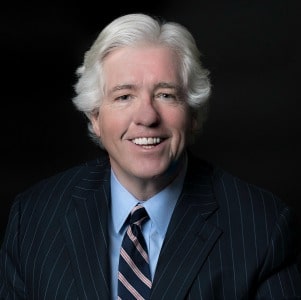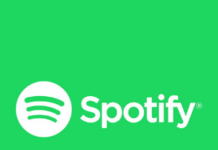
(By Peter Smyth) During the past months, I’d had the opportunity to think and view the radio business from a different perspective. Without the day-to-day obligations of leading a company, I have watched, read, and talked with friends throughout the radio industry. It’s a different view and at times, a disquieting one.
2018 was another challenging year for the radio business. If you eliminate the midterm political advertising, it was another in a series of “flat to down” revenue years. Managers must focus all their time and energy on the immediate viability of their company and forward-looking strategy can become an afterthought.
At the same time I do believe, as many say, that this is the golden age of audio. There are new and exciting delivery systems and content creators who are finding their way to connect with listeners, but not on the radio. We continue to struggle to find the right format mix or sales plan and hope for a bump in our ad revenues. What’s wrong?
In the era of hyper-individualized choice, radio’s offerings creak under the weight not only of its debt structure, but also its accumulated history. Much like our brethren in television, we are being whipsawed by an expanding universe of consumer choices. We no sooner adjust to Pandora than we have to contend with Spotify, Apple Music, Amazon Music, You Tube, and Google Play. As an industry, radio has not experienced anything like this since the FM breakthrough of 50 years ago. We are at an inflection point that demands a more radical approach. From where I stand, broadcast needs digital and digital needs broadcast. There are podcasts with great content that need more circulation, and there are broadcast stations that desperately need compelling content. We need to experiment with new delivery platforms and full digital integration to see if we can find valuable relationships with younger listeners (anyone under 35!).
We are at a point where consumers pay for the control and choice that they demand. We should respect and learn from that behavior. We need to stop clinging so tightly to our spot-advertising business model. More spots per hour are a dead end. We need to look at alternative revenue models such as sponsorships and subscriptions as a supplement to rational spotloads. We have burdened our products to the saturation point.
As leaders we no longer have the luxury of short-term fixes and band-aid thinking. We have to be all-in on a more radical and strategic way forward. I certainly do not have all the answers, but I know that we are going to have to fund and support experiments that may fail in order to find the best way. We have to see this business through a new lens, the critical lens of consumer behavior. We have to admit that we are overly-dependent on older listeners and formula DJs to prop up our one-time monopoly on customers’ ears. We have resources and community awareness that most digital-only operators would die for. We have to be open to new partners and joint ventures. Just creating a podcast/broadcast of our morning show is not sufficiently exciting. It is table stakes, not a winning hand.
The demand is for compelling content, where they want it and when they want it. The demand from sponsors and advertisers is for partnerships that move product in a provable and accountable way. We have to figure it out and not lull ourselves into extinction. Time’s short, the job is big and we need to start now.
Peter Smyth is the former CEO of Greater Media and the recipient of Radio Ink’s 2018 Lifetime Leadership Award. He can be reached by e-mail at [email protected]






Critical to the solution for any demo is consistently catalyzing and cultivating a sense of community where our listeners and advertisers become a part of something bigger/better than that which they can experience elsewhere.
That, and delivering our advertisers 52 weeks of measurable results they can directly attribute to radio.
iHeart is a “leader” like The Republican Party is made up of leaders.
Like the GOP, iHeart, so far as radio is impacted, is fronted by delusional, cruel, uninformed and corporate zealots.
Very unfair to criticize Bob Pittman and iHeart. Bob has been a maverick since the MTV days, and with his solid leadership and his Best in Class executive managers underneath him, iHeart has innovated in many ways and is the Gold Standard that other operators like to emulate.
HAHAHAHAHA ummmmmm… hi Bob!
“The Gold Standard”? You are kidding, right?
Well written & intentioned and absolutely right. Something may replace digital but at the moment that’s where it’s at from ads (revenue) to distribution (bluetooth). Hindsight dumbs us down for never having gotten FM on computers–resulting on not getting blessed by Apple and riding out mobile. Now we’re letting NextRadio go, cloning formats, voice tracking into predictability–and running too damn many spots, outsmarting ourselves at every opportunity. Foot meet bullet. C’mon iHeart, come out the other side and take some chances, give the people what they want, not what we want. Thanks Peter.
Let’s not fault iHeart please. Bob Pittman helped create MTV in the 70’s, and is a visionary who has already made hundreds of millions in profit for iHeart. And he has the best in class executive managers underneath him. Plus, soon iHeart will have their debt cut in half, to only 10 billion dollars. The iHeart app is already something that Apple would love to own. So iHeart is not the problem, they are the leader.
“I think there is a world market for maybe five computers.”
Thomas Watson, president of IBM, 1943
Thomas Watson was also a visionary. Sometimes a person’s past success blinds them to the present and more importantly … the future.
The fact you felt compelled to reference “the 70’s” made this case better than anything I could have offered in rebuttal.
Hi Bob
Keerect, Buddy.
However, the next considerations for you and any others in your enviable positions are:
How, specifically, are we to improve our on-air and commercial-generating processes?
Accomplishing those will create winning radio stations that become cash cows.
WECK in Buffalo is flourishing. A locally-owned, 1 KW-AM , with 2 FM Translators, is making local and national news, and getting very tangible results with ratings and revenues.
No consultants, No Board Members, No Wall Street money, No homogenizing departments, no huge debt load…just content that makes sense to the market demo.
The big companies have no solutions to radio’s problems, because the big companies caused it. The last people I would ask advice for on radio’s future is a big wall street company. These companies are trying to provide hope to wall street – that’s it. Podcasts, digital…it’s all smoke and mirrors so that wall street does not actually focus on the primary product….radio.
Radio should have realized it had a problem, long ago, when HD radio was a flop. That fact that no one bought an HD radio and no one cared, should have been some type of indication that radio was in trouble.
Here is my radio advice to the large companies who are trying to compete with someone like me, a small station owner, in a medium market. Buffalo. Treat your advertisers better. Give them some ideas. Make your production departments actually work on creative. Develop relationships on high levels. GM’s and SM’s should not be sitting in an office waiting for orders. They should be meeting and spending time with clients.
AS far as listeners go, good luck. Especially for the younger. Dump the consultants, who are always going to find a way to tell you that something is being done wrong. Go with your gut, be the community station your expected and required to be.
I agree, radio should be doing better, but its executives are too busy worrying about their wannabe digital dashboards, debt, and working through Chapter 11s instead of running radio stations.
And of course you have Joe Chille working there. Can’t hurt! 😀
Your thoughts are well said. But radio also needs to sell both younger and older Americans. This notion that 55 is “too old” is getting busted daily. It doesn’t represent reality in 2018.
Radio needs more than a new approach..RAdio is mostly DOA
What a load!
While I agree that radio should integrate with digital better let me pose a couple of questions.
1: Radio is ubiquitous, the fidelity is at LEAST as good if not far better than digital and it’s FREE. How in the hell do you blow that enormous advantage?
2: I ask this with requisite humility since I have not researched it myself, but why is it that local TV competes well with Netflix, Youtube et al? I get the in-car thing, but is that the whole story?
May I posit a theory? It COMMERCIALS! When we went from a 12 minute commercial hour to a 17 minute commercial back in the 90’s I knew the end was near. My wife owned a medical transcription company, and I would delivered the product to doctor’s offices every day. I recall the office manager at one office telling me “I can’t listen to your station anymore because from the time I leave home until the time I get to work I hear one song, and the rest is commercials.”
After 36 years I left radio that year, went into IT and never looked back
Local TV is not competing with Netflix, YouTube, et al and is bleeding younger viewers just as Radio is younger listeners. I work with a lot of TV affiliates and it’s the same issue. No one under 35 is watching the Morning/Evening News and they’re all behind on streaming. News content comes through our phones now, in an instant, and millions of songs are now just a click away as well. And you’re spot on re: commercial load. How can Radio compete when there are so many other FREE options with a much smaller commercial load (and subscription revenue to boot)? I think we all know what the issue is, but how to fix it?
There are NO “free” options. Streaming audio is expensive and doesn’t comport well to in-car usage. But let’s pursue another track, since radio is likely irrelevant to anyone between the ages of 18-54 even though there’s ample evidence that many of THOSE people come back to radio eventually. Who in the hell has decided that the 55+ demo, with $2 TRILLION annually in disposable assets, isn’t the demo to pursue anyway?
Network TV has figured that out given all the Depends and high-priced drug ads on most of their prime programming. Why can’t radio “get it?”
“Who in the hell has decided?”
The advertisers. Yes they buy TV. Not radio. They can sell better on TV.
It’s them, not radio. Radio has lots of formats and stations for 55+.
Any “ideas”, Chris, are met with suspicion, delegated to bottom drawers or disregarded altogether, espectially if those ideas are not consistent with, or serve the strained status quo.
Those who criticize and deride the industry do not fall into the “Home On The Range”-category where “seldom is heard a discouraging word”. Their input is ever-so-conveniently labelled as “negative” and tossed aside.
Even the suggestions of a stalwart and credible individual like Peter still smack of a perceived need to make alliances with and be more like the other guys.
Very seldom are the priorities of the need for radio to address its own on-air and commercial production responsibilities given any quality consideration around executive tables.
Great article. But we’re are the ideas?
When many of the great stations sold out to iHeart (Clear Channel) they would up living in a pile of debt, short-handed and with centralized management. So, I ask you, is that where great ideas leading to change come from?